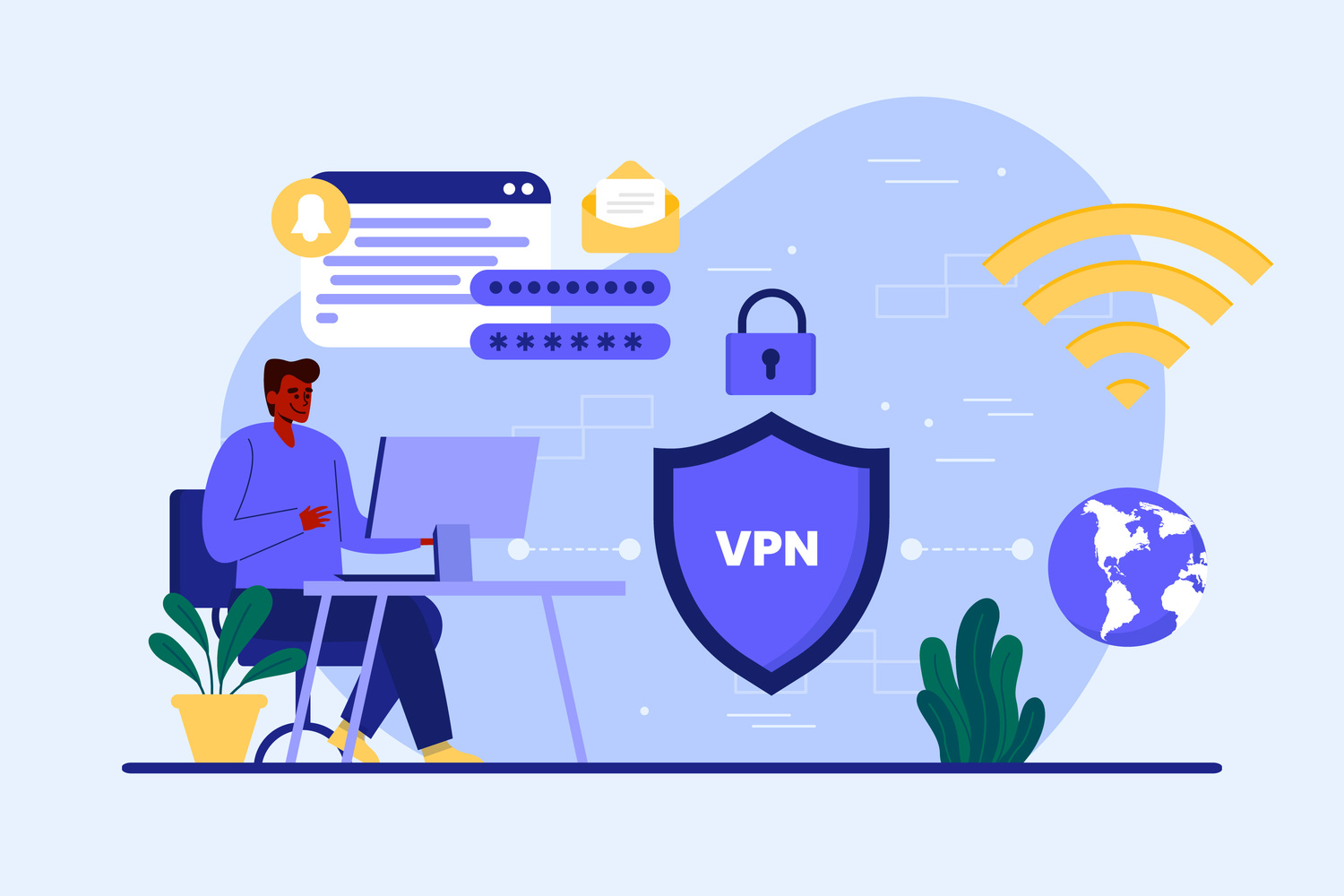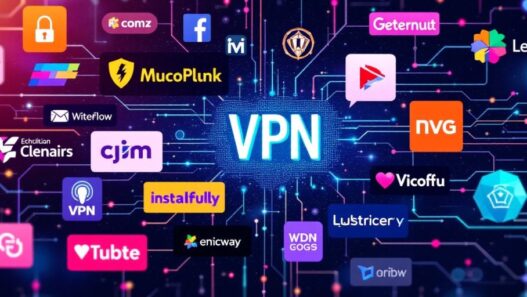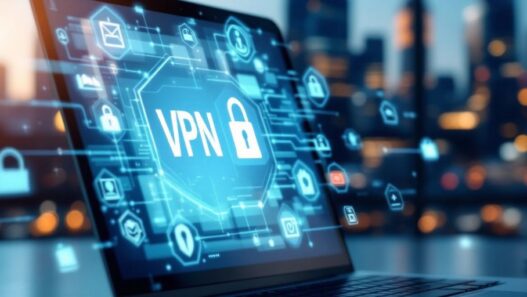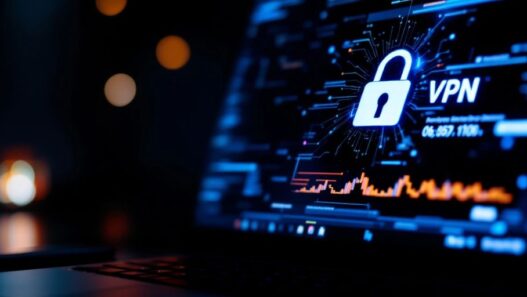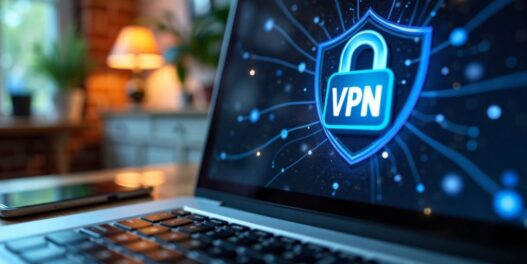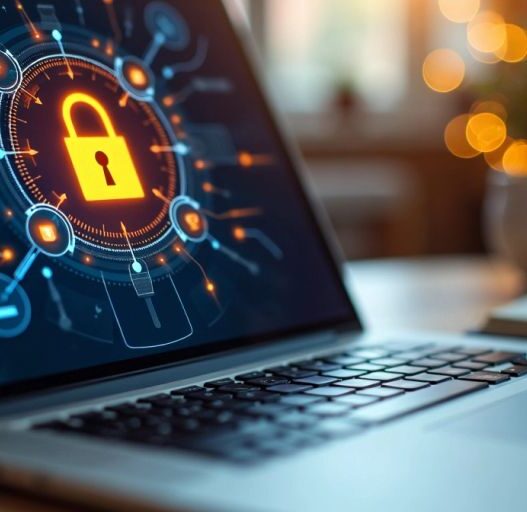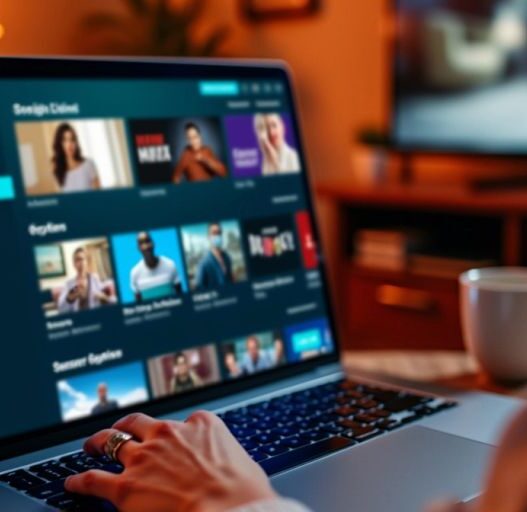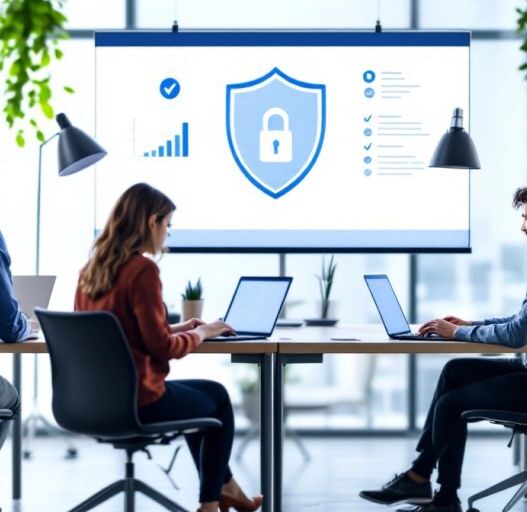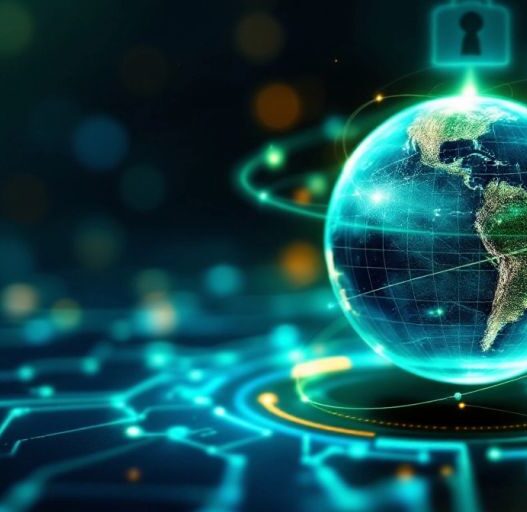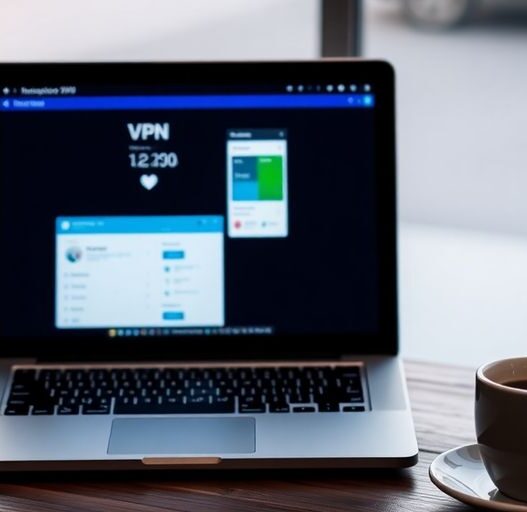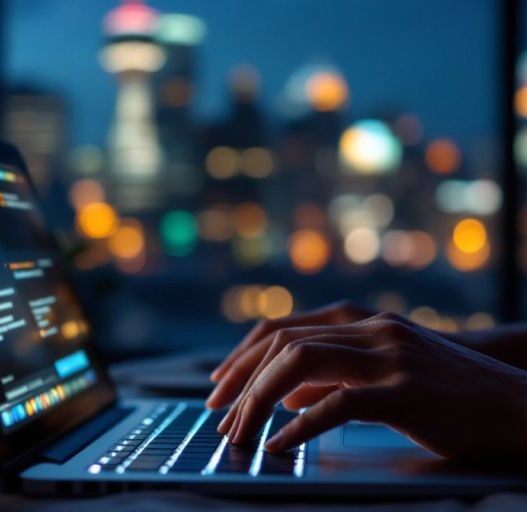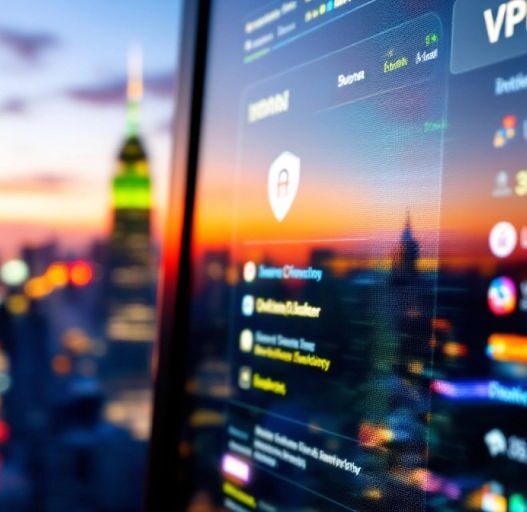In a world where online privacy is increasingly at risk, understanding how Virtual Private Networks (VPNs) work can empower you to protect your personal information. This beginner’s guide breaks down the essential aspects of VPNs, explaining their functions, benefits, and how to choose the right one for your needs. Whether you’re looking to safeguard your data on public Wi-Fi or access content from different regions, this guide will provide you with the knowledge you need to navigate the digital landscape securely.
Key Takeaways
- A VPN creates a secure tunnel for your internet connection, keeping your data safe from prying eyes.
- By using a VPN, you can hide your real location and appear to browse from a different place.
- VPNs help protect your data when using public Wi-Fi, making it harder for hackers to steal your information.
- Choosing a reliable VPN service is crucial; not all VPNs are created equal, and some may compromise your privacy.
- While VPNs enhance your online security, they are not a complete solution and should be combined with other security measures.
Understanding the Basics of VPNs
What is a VPN?
A VPN, or Virtual Private Network, is a tool that helps keep your online activities private. It does this by creating a secure connection between your device and the internet. When you use a VPN, your real IP address is hidden, and your data is encrypted, making it much harder for anyone to see what you are doing online.
How Does a VPN Work?
When you connect to the internet without a VPN, your data travels through your Internet Service Provider (ISP) to reach websites. This means your ISP can see everything you do online. However, when you use a VPN, your data is first encrypted and then sent through a secure tunnel to a VPN server. Here’s a simple breakdown of the process:
- Encryption: Your data is turned into unreadable code.
- Secure Tunnel: The encrypted data travels through a private connection to the VPN server.
- Decryption: The VPN server decrypts your data and sends it to the website you want to visit.
This way, the website only sees the IP address of the VPN server, not your own, which helps protect your identity and location.
Key Terms Related to VPNs
- Encryption: The process of converting data into a code to prevent unauthorized access.
- IP Address: A unique identifier for your device on the internet.
- VPN Server: A remote server that acts as a middleman between your device and the internet.
Using a VPN is like having a private tunnel for your online activities, keeping your information safe from prying eyes.
Understanding these VPN basics is essential for anyone looking to enhance their online privacy. With the rise of online threats, knowing how VPNs work can help you make informed decisions about your internet security.
The Importance of VPNs for Online Privacy

In today’s digital world, protecting online privacy is crucial. VPNs, or Virtual Private Networks, play a vital role in keeping your information safe from prying eyes.
Why Online Privacy Matters
- Data Protection: With increasing data breaches, safeguarding personal information is essential.
- Avoiding Tracking: Many companies track online behavior for advertising purposes. VPNs help prevent this.
- Freedom of Access: Users can browse without restrictions, accessing content from anywhere.
How VPNs Protect Your Data
VPNs work by encrypting your internet connection, making it difficult for anyone to see what you are doing online. Here’s how:
- Encryption: Your data is converted into a code, protecting it from hackers.
- IP Masking: Your real IP address is hidden, making it hard to trace your online activity.
- Secure Connections: VPNs create a secure tunnel for your data, especially on public Wi-Fi.
Common Threats VPNs Mitigate
VPNs help protect against various online threats, including:
- Hackers: They make it harder for hackers to intercept your data.
- ISP Monitoring: Internet Service Providers can’t see your online activity.
- Geo-Restrictions: VPNs allow access to content that may be blocked in your region.
Using a VPN is a smart choice for anyone who values their online privacy and security. It’s a simple way to enhance your digital safety.
Setting Up and Using a VPN
Choosing the Right VPN Service
When it comes to selecting a VPN, the choice can greatly affect your online experience. Here are some key points to consider:
- Reputation: Look for VPNs with positive reviews and a strong track record.
- Features: Ensure the VPN offers essential features like encryption and a no-logs policy.
- Compatibility: Check if the VPN works on your devices, such as smartphones, tablets, and computers.
Installing VPN Software on Different Devices
Setting up a VPN is usually straightforward. Here’s a simple guide:
- Download the VPN app from the provider’s website or your device’s app store.
- Install the app by following the on-screen instructions.
- Log in using your account details.
- Select a server to connect to.
- Test your connection to ensure it’s working properly.
Configuring Your VPN Settings
After installation, you may want to adjust some settings for better performance:
- Choose the right protocol: Options like OpenVPN or IKEv2 are often recommended for security.
- Enable kill switch: This feature disconnects your internet if the VPN fails, keeping your data safe.
- Adjust DNS settings: This can help prevent DNS leaks, ensuring your browsing remains private.
Using a VPN is a great way to enhance your online privacy and security. It’s important to choose the right service and configure it properly to get the most out of your VPN experience.
This VPN tutorial aims to guide beginners through the essential steps of setting up and using a VPN effectively.
Advanced Features of VPNs

As users explore the world of Virtual Private Networks (VPNs), they will discover several advanced features that can significantly improve their online experience. These features not only enhance security but also provide more control over how users connect to the internet.
Encryption and Security Protocols
Encryption is a key feature of VPNs. It protects your data by converting it into a code that is unreadable to anyone who might intercept it. Here are some common encryption protocols:
- OpenVPN: Highly secure and widely used.
- IKEv2/IPsec: Fast and stable, especially on mobile devices.
- L2TP/IPsec: Offers good security but can be slower.
Obfuscated Servers and Their Uses
Obfuscated servers are designed to hide the fact that you are using a VPN. This is especially useful in countries where VPNs are restricted. By disguising VPN traffic as regular internet traffic, users can bypass censorship and access blocked content.
DNS Leak Protection
DNS leak protection is crucial for maintaining privacy. It ensures that your DNS requests are routed through the VPN, preventing your Internet Service Provider (ISP) from seeing which websites you visit. This feature helps keep your online activities private and secure.
Understanding these advanced features can help users make informed decisions about their VPN choices.
In summary, advanced features like encryption protocols, obfuscated servers, and DNS leak protection enhance the security and usability of VPNs, making them a valuable tool for anyone concerned about online privacy.
Common Use Cases for VPNs
Accessing Geo-Restricted Content
Many people use VPNs to access content that is not available in their region. By connecting to a server in another country, users can unlock shows, movies, and websites that are otherwise blocked. This is especially popular for streaming services like Netflix, where different countries have different libraries.
Using VPNs for Torrenting
Torrenting can expose users to various risks, including legal issues and data theft. A VPN helps protect users by hiding their IP address and encrypting their data. This makes it safer to download files without worrying about prying eyes.
Enhancing Security on Public Wi-Fi
Public Wi-Fi networks, like those in cafes or airports, can be dangerous. Hackers often target these networks to steal personal information. Using a VPN on public Wi-Fi adds a layer of security, making it much harder for hackers to access sensitive data.
Using a VPN is a smart choice for anyone who values their online privacy and security, especially when using public networks.
Summary of Use Cases
- Access geo-restricted content by connecting to servers in different countries.
- Safely torrent files while keeping your identity hidden.
- Secure your connection on public Wi-Fi to protect personal information.
By understanding these common use cases, users can better appreciate the value of VPNs in their online activities.
Potential Limitations and Risks of VPNs
While VPNs offer many benefits, they also come with some limitations and risks that users should be aware of.
Understanding VPN Logging Policies
Not all VPNs are created equal when it comes to privacy. Some may keep logs of user activity, which can defeat the purpose of using a VPN. Here are key points to consider:
- Reputation: Choose a VPN with a strong reputation for privacy.
- Transparency: Look for clear privacy policies that explain what data is logged.
- Independent Audits: Some VPNs undergo third-party audits to verify their claims.
Free vs. Paid VPNs
Free VPNs can be tempting, but they often come with significant drawbacks:
- Limited Features: Free services may lack essential features like strong encryption.
- Data Caps: Many free VPNs impose data limits, making them impractical for heavy users.
- Privacy Risks: Some free VPNs may sell user data to advertisers.
When Not to Use a VPN
There are situations where using a VPN might not be advisable:
- High-Speed Gaming: VPNs can slow down your connection, affecting gaming performance.
- Streaming Services: Some platforms actively block VPN traffic, making it hard to access content.
- Sensitive Transactions: For highly sensitive activities, relying solely on a VPN may not be enough.
In summary, while VPNs enhance online privacy, users must be cautious about their limitations and choose wisely.
Choosing the Best VPN for Your Needs

When it comes to selecting a VPN, making the right choice is crucial. With so many options available, it can be overwhelming. Here are some important factors to consider:
Factors to Consider When Selecting a VPN
- Reputation and Privacy Policy: Look for a VPN with a strong reputation and a clear privacy policy. Avoid those that log user data.
- Server Network: A larger number of servers can lead to better connection speeds. Check if the VPN has servers in the locations you need.
- Extra Features: Think about what additional features you might want, such as ad-blocking or split tunneling.
- Value for Money: Prices can vary widely. Compare options and look for discounts on long-term plans.
Top VPN Providers in the Market
| VPN Provider | Key Features | Price Range |
|---|---|---|
| NordVPN | Strong security, no logs | $3/month |
| ExpressVPN | Fast speeds, user-friendly | $8/month |
| Surfshark | Unlimited devices, affordable | $2.49/month |
Evaluating VPN Performance and Speed
- Test Speeds: Use speed test tools to check how fast the VPN is.
- Check for Leaks: Ensure there are no DNS or IP leaks that could expose your data.
- Read Reviews: Look for user feedback on performance and reliability.
Choosing the right VPN can greatly enhance your online privacy and security. Take your time to research and find the one that fits your needs best.
Wrapping Up: Understanding VPNs
In conclusion, using a VPN is a smart choice for anyone who wants to keep their online activities private and secure. By creating a safe connection between your device and the internet, a VPN helps protect your personal information from hackers and snoopers. It also allows you to access content that might be blocked in your area. Remember, while VPNs are great tools for privacy, they aren’t a complete shield against all online threats. It’s important to choose a reliable VPN service that fits your needs. Now that you know how VPNs work, you can make an informed decision about whether to use one.
Frequently Asked Questions
What is a VPN and why should I use one?
A VPN, or Virtual Private Network, helps keep your online activities private. It creates a secure connection between your device and the internet, making it harder for others to see what you’re doing. You might use a VPN to access content that’s not available in your area or to protect your personal information.
How does a VPN protect my data?
A VPN protects your data by encrypting it. This means that even if someone tries to intercept your information, they won’t be able to read it. It’s like sending a secret message that only the person you’re sending it to can understand.
Can I use a VPN on all my devices?
Yes, most VPNs work on various devices, including computers, smartphones, and tablets. Some VPN services even offer apps for smart TVs and game consoles, so you can stay protected no matter what device you’re using.
Are free VPNs safe to use?
While free VPNs might seem appealing, they often come with risks. They may not provide the same level of security as paid services and might sell your data to advertisers. It’s usually safer to choose a reliable paid VPN.
Do I need technical skills to set up a VPN?
Not at all! Most VPN services have user-friendly apps and guides that make it easy to set up. You just need to download the app, follow the instructions, and you’ll be connected in no time.
Is using a VPN legal?
Yes, using a VPN is legal in most places. However, it’s important to remember that using a VPN for illegal activities is still against the law. Always use a VPN responsibly.
